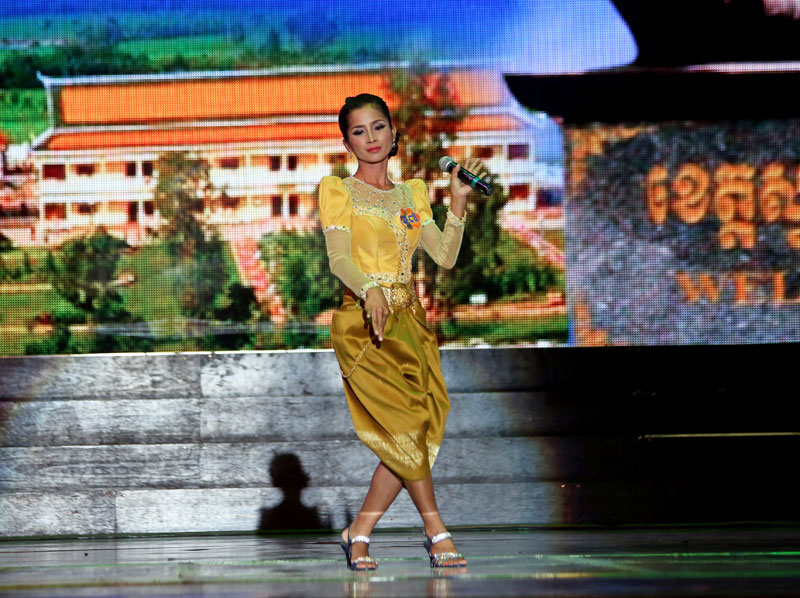Some of the most talented singers and performers in traditional Cambodian arts took to the stage on Thursday for the final round of the Universal Khmer Song Contest 2014.
Following an opening speech by Deputy Prime Minister Sok An on the need to preserve Cambodia’s culture, contestants competing in the categories of traditional song, poetry, modern song and yike—a genre of dance drama—took turns trying to wow a panel of judges with their interpretations of the art forms.

Last night’s event on Koh Pich island in Phnom Penh closed the contest, which began on July 17 and featured 114 contestants of Cambodian descent from across the world. First, second and third places were awarded in each of the four categories based on the singer’s interpretation of the song, technique, expression and dress, with first-place winners taking home a $1,500 cash award.
After taking first prize in the yike competition, Chheng Phirum, 24, from Takeo province, said his hours of hard work had paid off.
“My parents are traditional musicians and I have learned and practiced with them since I was young. That makes [me] feel fond of that kind of Khmer music,” he said.
“After this, I will try best to develop my career and do research more comprehensively about yike so that the young next generations will be able to study, practice and maintain it.”
Competitors’ performances were interspersed with apsara dancing and the beating of drums and howls as a dance troupe played out battle scenes.
Khim Sarith, secretary of state at the Ministry of Culture and Fine Arts, said the contest, which was broadcast on national television, would help instill pride in Cambodia’s traditional arts.
“Cambodia is worried about the loss of culture due to globalization and the loss of our traditional customs,” Mr. Sarith said.
“And now we have children who cannot speak Khmer because they were born overseas. So we are worried they don’t know Khmer culture.”
Judge Sam-Ang Sam, a musician, professor and adviser to the Culture Ministry, said the competition also represented a key opportunity for young people hoping to pursue a career in music.
“The contest means a lot, as it gives the opportunity for singers to come and try out their talent, and it can be a stepping-stone for further career development, such as lead[ing] to a recording contract,” said Mr. Sam.
“For culture, this is an assessment of our resources,” he said.



